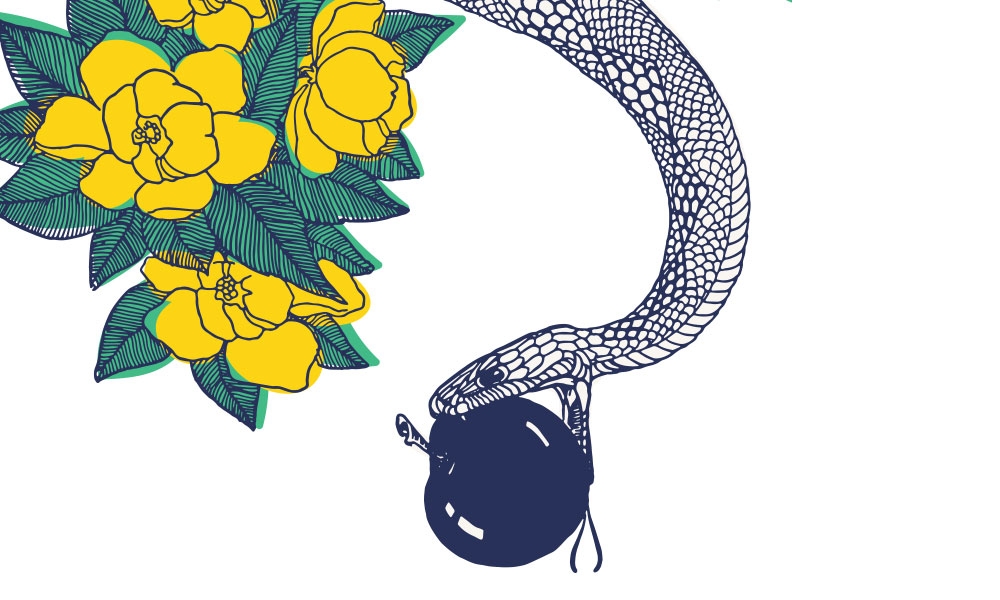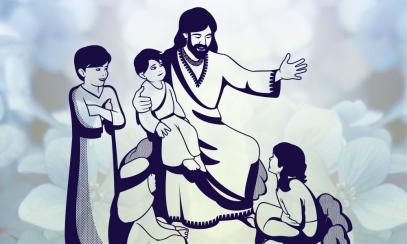
Via Fidelis: The kerygma is God’s enduring love for us
From the moment the first ray of light fell on the soil in Eden, humanity’s story has been one of profound love and tragic rebellion. While we strayed from that perfect garden into shadow, this isn’t a tale of paradise lost. The ancient narrative that unfolds reveals something far more remarkable: a love so relentless it refuses to let go, even when we choose to turn away.
From the moment the first ray of light fell on the soil in Eden, humanity’s story has been one of profound love and tragic rebellion. While we strayed from that perfect garden into shadow, this isn’t a tale of paradise lost. The ancient narrative that unfolds reveals something far more remarkable: a love so relentless it refuses to let go, even when we choose to turn away.
As we journey through our Via Fidelis reflection and explore the kerygma — the heart of the Gospel message — we discover that our story begins not with our fall, but with an act of love so pure it would withstand every human rejection to come.
If you have ever read the Bible cover to cover, or even started to read the Bible and stopped after a couple pages, you know that humanity does not remain in a happy creative embrace for long. Within the first few pages of Genesis, the story takes a devastating turn to sin, and it’s one of those stories we all know.
The Adam and Eve saga is familiar even to those outside of Christianity. It seems that there is something about it that resonates deeply with humanity. It points to what we call “original sin,” an estrangement where we find ourselves on opposite sides to God and each other; this often seems to be our human default position. It is also a story that we relive repeatedly in our own lives or see replayed around us.
The entire story of humanity is one of temptation, deceit, broken relationships, shame, blame and consequences. From one standpoint, human history can be seen as the story of sin. One need only check the news to see that this is as true today as it ever was. Where is the Good News in any of this?
While the brokenness of humanity or ourselves is not a good story, the Good News we are called to proclaim is that through Christ human history is not relegated to be a repetitious drama of sinfulness — it is a story of redemption. Human history becomes salvation history in Christ. The Good News, quite frankly, is that while sin damages our relationship with God, it does not destroy the possibility of relationship completely. This is not due to anything we do, but because of the immense love in which God created us and then continues to pour out.
God recognizes us as his beloved creation. That never ends. Our turning away from him — which happens definitively in original sin and is echoed in every subsequent sinful act in human history, including the sinful acts in our lives — is not enough to overwhelm the depth of God’s love for us.
We see this reflected in Scripture even through the events that precede the coming of Christ in salvation history. In the Adam and Eve story, we see God’s reaction including meeting the needs of his fallen creatures: God makes clothing for the man and woman (Gn 3:21). He does not abandon them. So, God does not push humanity away completely, but instead accommodates our broken state. It’s called the Protoevangelium, or first gospel, because it’s “the first announcement of the Messiah and Redeemer, of a battle between the serpent and the Woman, and of the final victory of a descendent of hers” (Catechism of the Catholic Church 410).
The subsequent covenantal story that unfolds throughout the Old Testament is a story of God living in relationship with his people and often meeting their needs. This finds its fullest form in the coming of Christ, who meets our deepest human needs by bringing about the reconciliation of humanity that we have desired since the outset of our common story.
God’s love for humanity, rooted in creation, is much stronger than any version of human love we can imagine. It endures all that we can throw at it. His ways are truly beyond ours — how often do we hold grudges and push people away for the most minor offenses? Therefore, while we can look at our lives and the world around us as a continued spiral of brokenness and sinfulness, we can actually see the world more clearly because of Jesus.
We are enabled, through the eyes of Christ, to see the continuation of the eternal love story playing out in real time in the world and in our lives. The offer of a relationship of love through the cross, the remedy to our deepest maladies, is constantly and unwaveringly extended to us.
The Good News is that Christ is constantly asking us to let ourselves be loved by him. The only question that remains is how we respond.
Michael Martocchio, Ph.D., is the secretary of discipleship and the director of the Office of Catechesis and Christian Initiation. Email him at mmartocchio@charlestondiocese.org.



